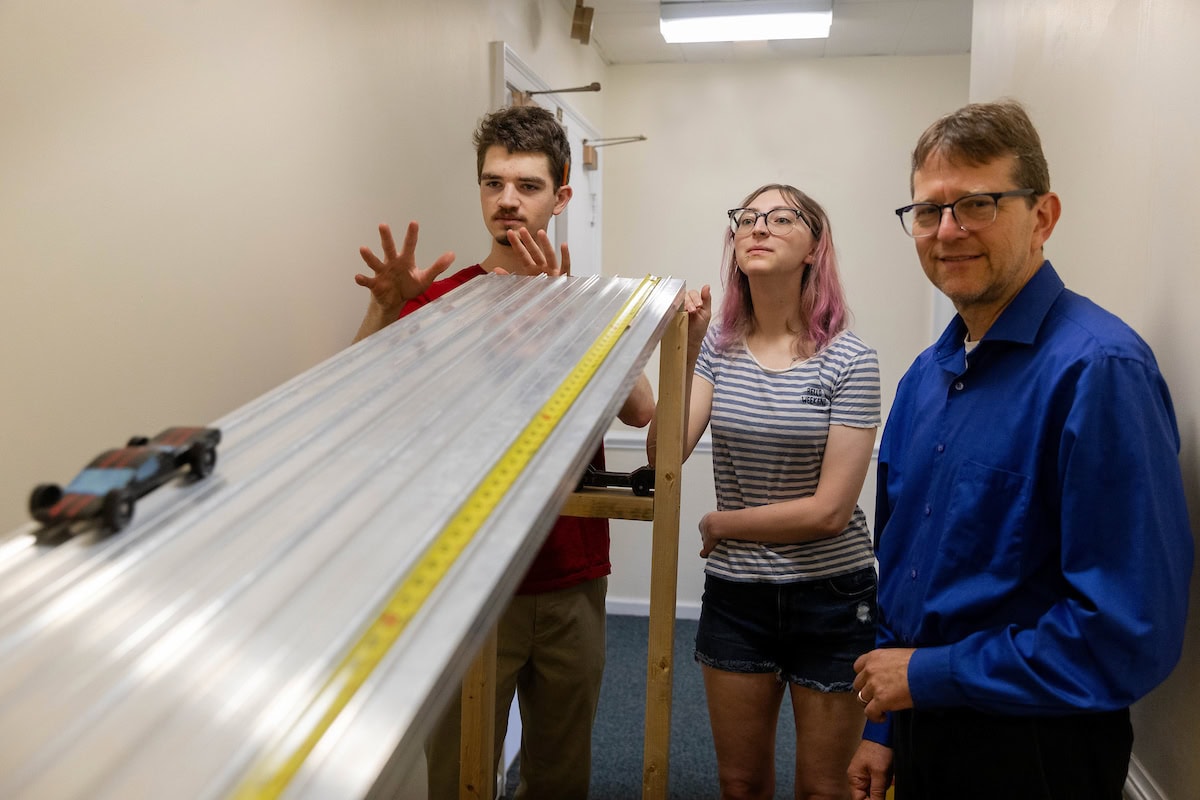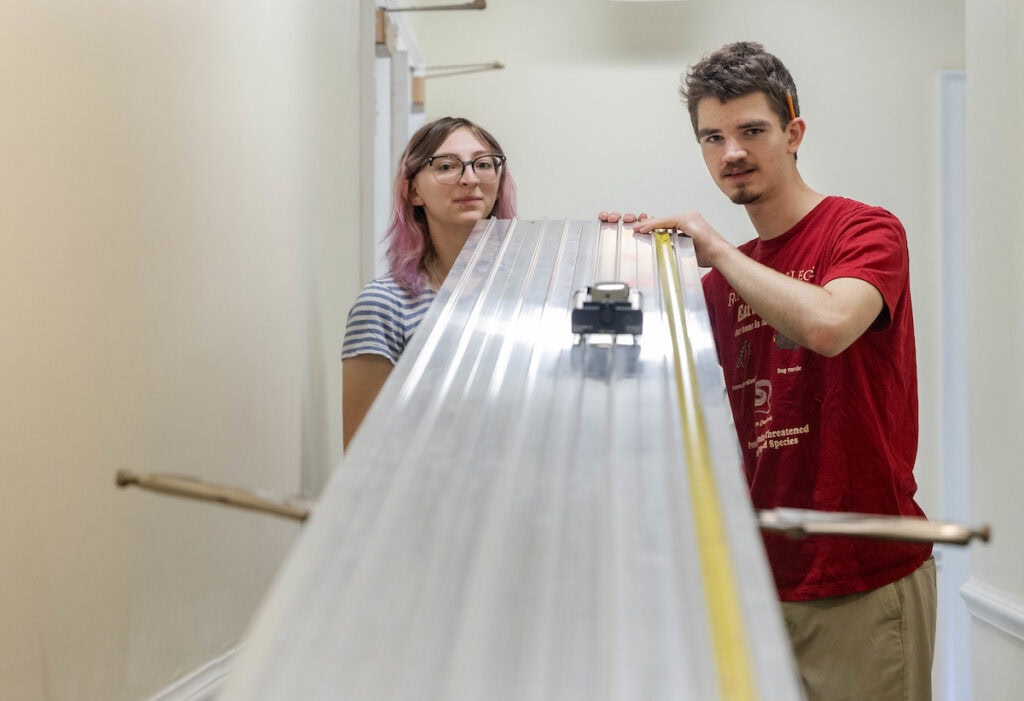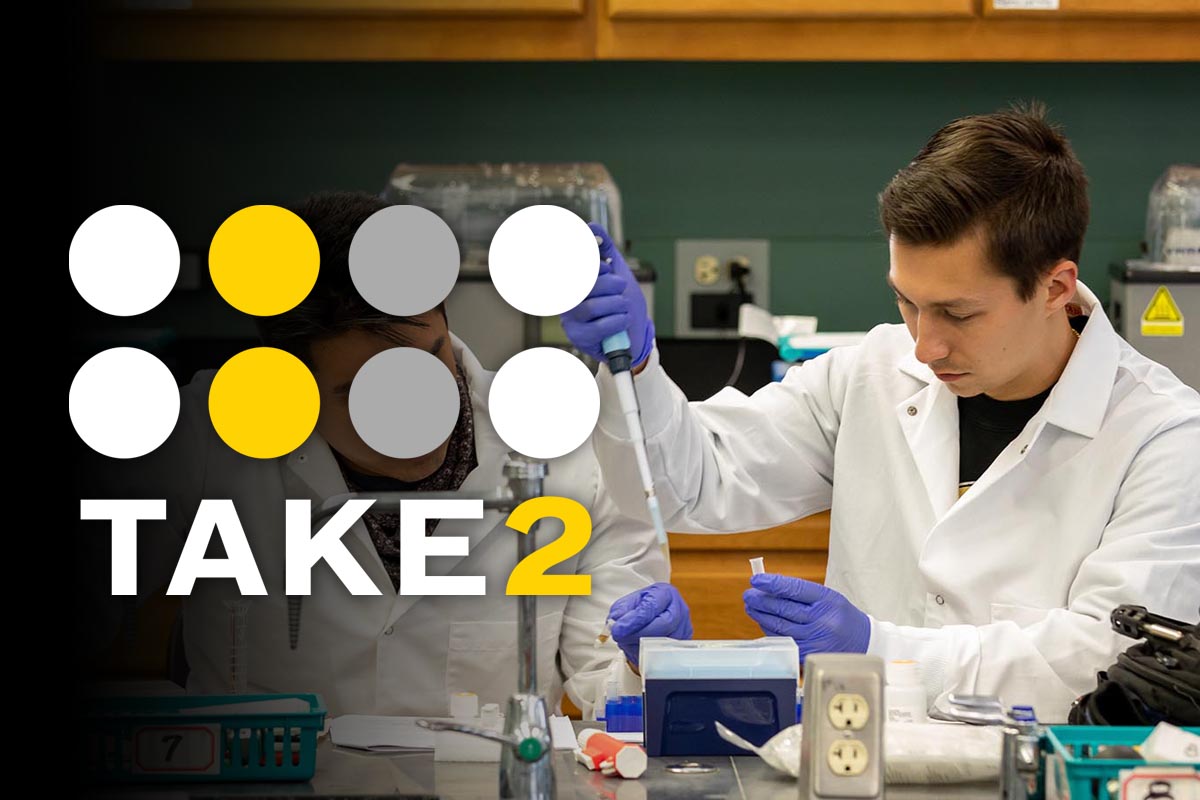‘The Bumpy Ramp Problem’: Students investigate AP physics test question
This story is part of an ongoing series featuring the work of faculty and students participating in Randolph’s 2024 Summer Research Program.

Gregory Wietrzykowski ’26, Alaina Snider ’26, and professor Peter Sheldon roll a toy car down a ramp as part of their summer research.
In 2016, a question on the Advanced Placement (AP) Physics 1 exam rankled some in the science community.
Students were asked to make calculations about a vehicle going down an inclined plane with regular bumps.
But there was one problem: The question could not be easily answered with the physics learned by the first-year students taking the exam.
“AP physics problems tend to be written to be true to life,” said Randolph professor Peter Sheldon, who has served as the exam’s chief reader in the past. “It’s supposed to be things students have experienced or could experience. This problem was not.
“We have since decided in the AP exam development committee that we can’t write problems like that anymore,” he added.
This summer, Sheldon is teaming up with Alaina Snider ’26 and Gregory Wietrzykowski ’26 to study the original problem as part of Randolph’s Summer Research Program. The competitive, paid program gives students the chance to work closely with faculty members conducting research in their areas of interest.

They are using both computational and physical models to determine the motion of a car on a bumpy ramp. As of mid-May, they’d designed and assembled a 28-foot long ramp, housed in a hallway of Webb Hall, and were experimenting with the placement of the bumps.
The exact scenario posed in the AP exam is nearly impossible to recreate. To do so, Sheldon said the ramp would have to be three times its current length.
“The question was very conceptual,” Sheldon said. “A lot of people felt it should have been something we could answer more definitively. It’s been in the ethos ever since, and we thought it would be worth trying to answer it.”
When the trials begin, they will measure the motion of a car going down the ramp via video analysis and motion sensors.
“I’m a physics major, and I was looking to dive right into a project with some hands-on experience,” Snider said. “I also liked the idea of researching something that hasn’t really been investigated before.”
Wietrzykowski, a chemistry major interested in materials science, will also be doing simulations on MATLAB, a high-level programming platform.
“Simulations play a big role in materials since,” he said. “This is a really good way to get into this space and solve an interesting problem.”
Tags: faculty student research, Peter Sheldon, physics, summer research, summer research 2024
